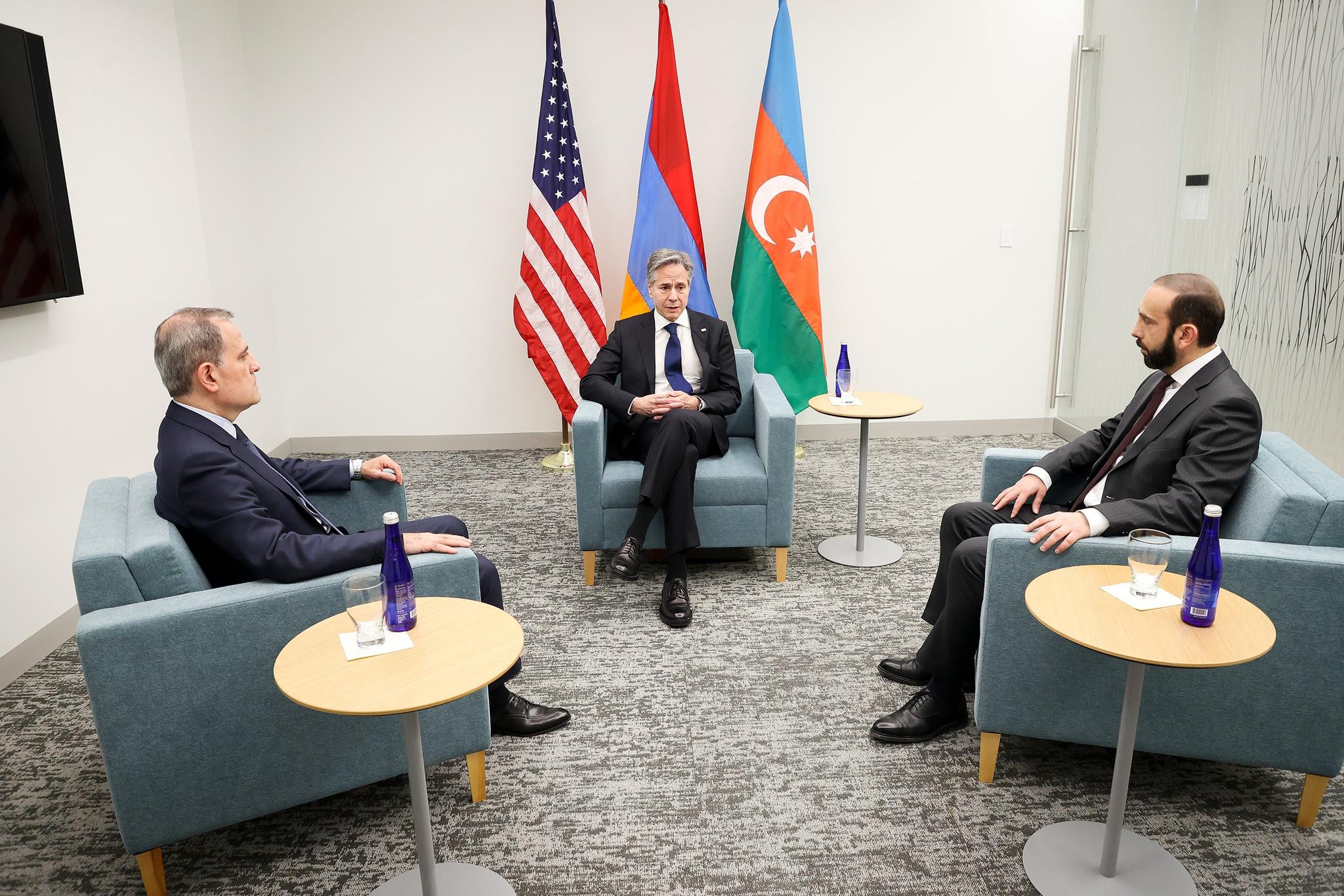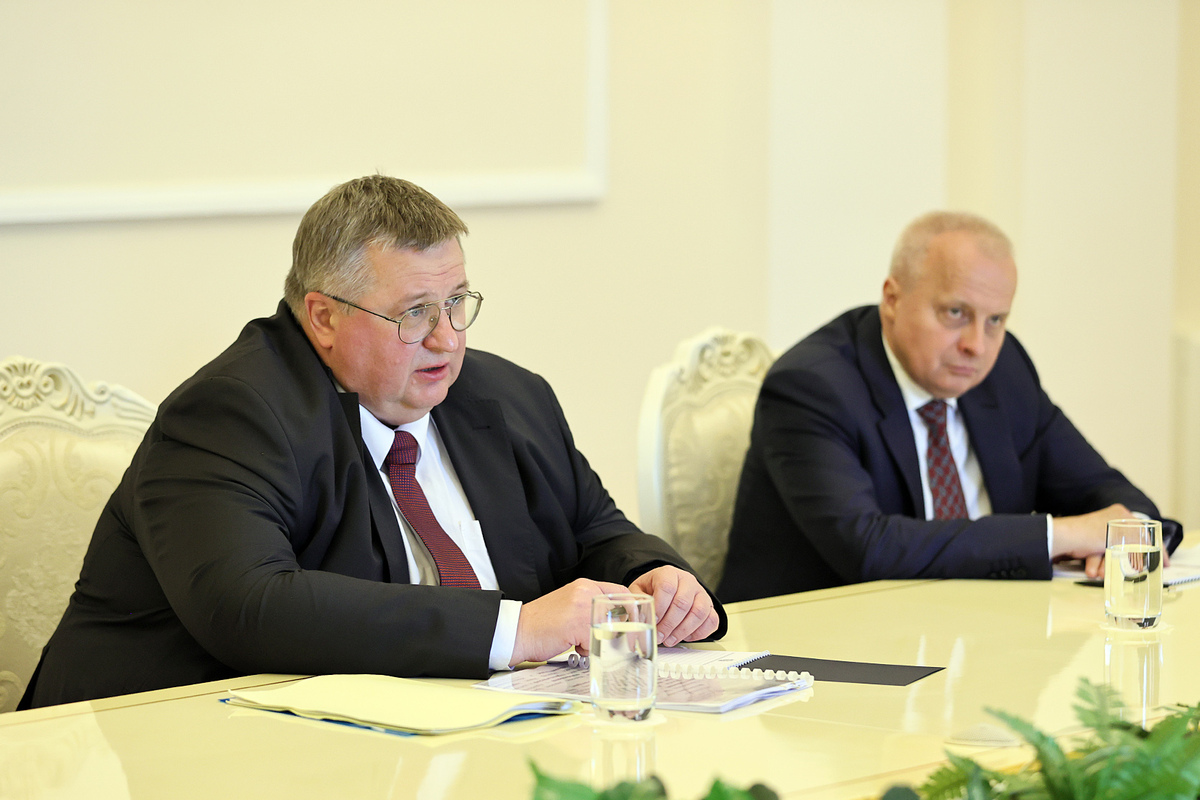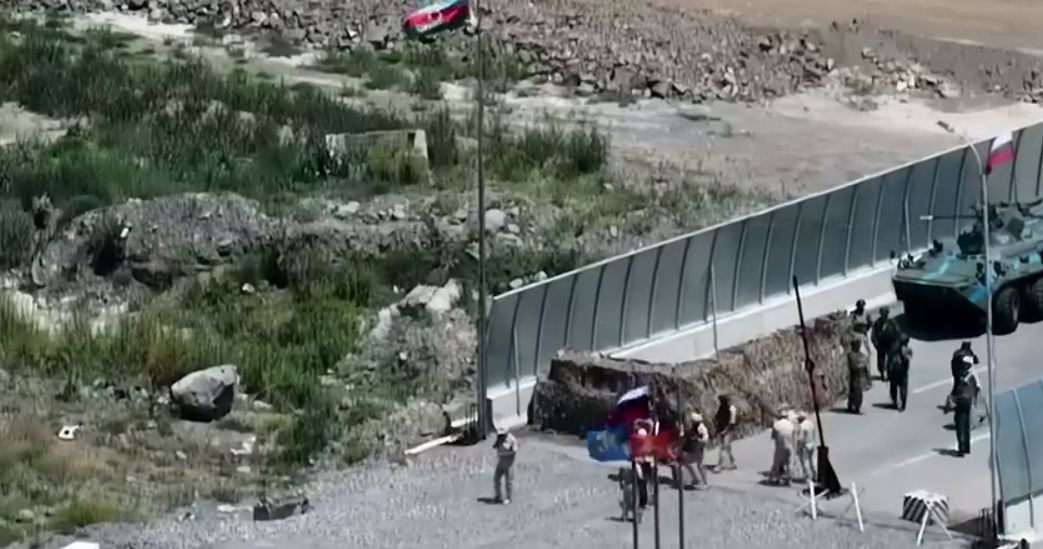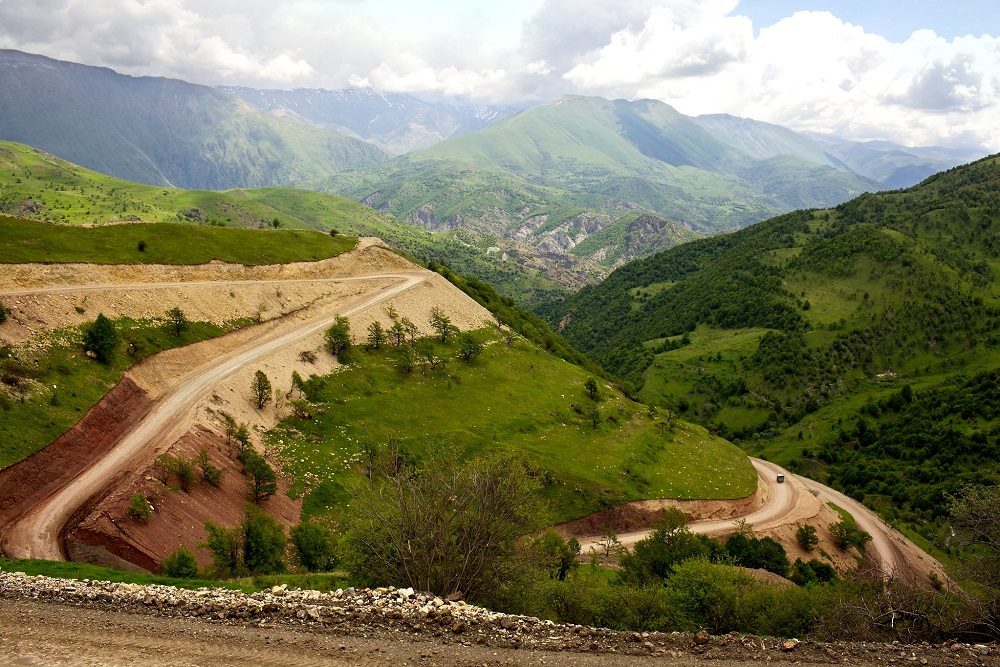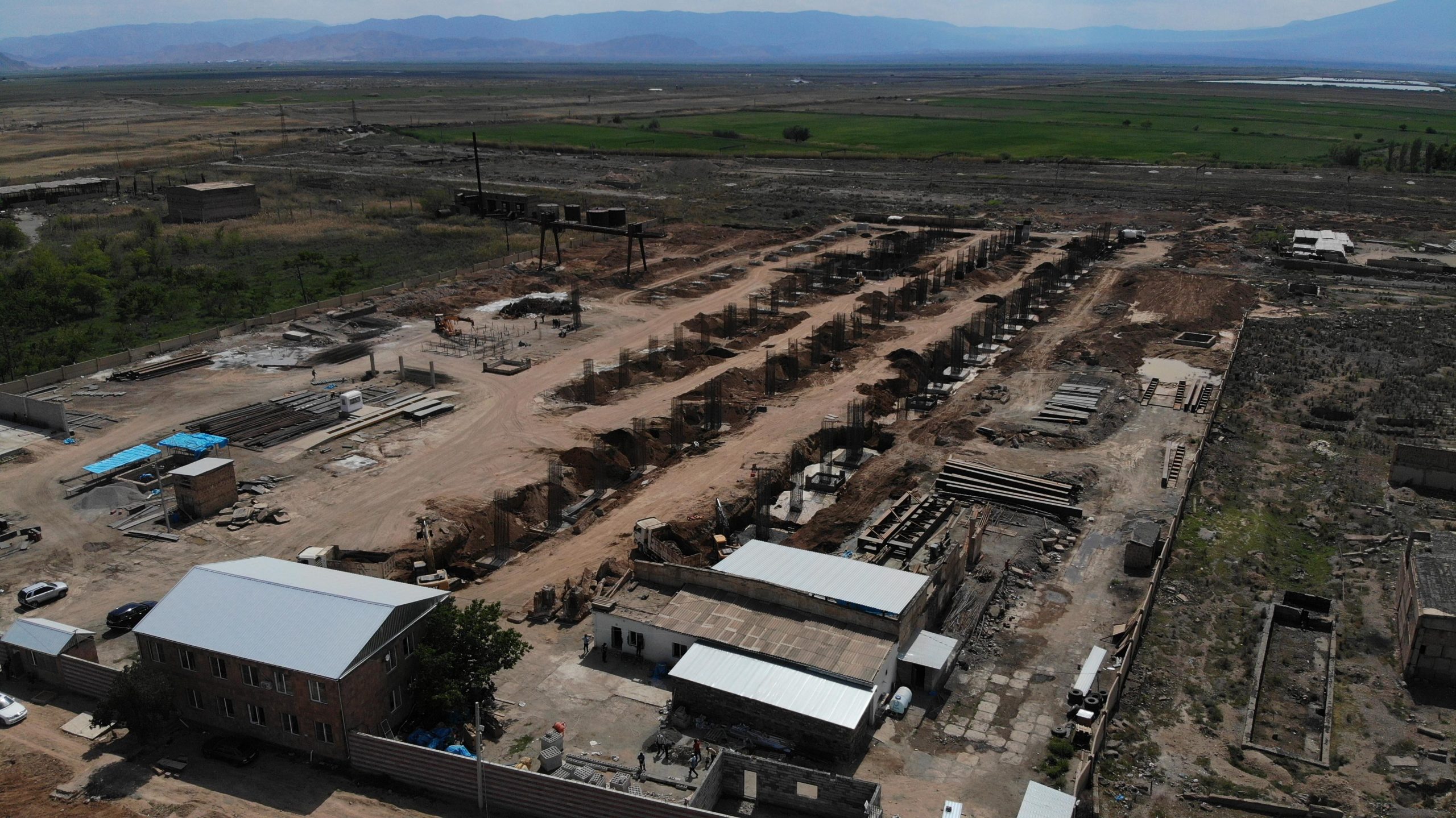“Negotiations or pressure on Armenia?”: shelling in NK during negotiations in Washington
Shelling during negotiations in Washington
“The situation can be defined as follows: either there are no negotiations, or the use of force is part of these ‘negotiations’,” political observer Hakob Badalyan believes.
During the meeting between the Foreign Ministers of Armenia and Azerbaijan, which began on June 27, Baku used a UAV in Nagorno-Karabakh, which killed four soldiers. The Armenian Defense Ministry reports that the Azerbaijani Armed Forces once again fired at the Armenian-American plant under construction in Yeraskh. In connection with these incidents, NK demanded that the Armenian delegation “immediately stop negotiations until a full-fledged truce is established both on the line of contact with NK and on the Armenian-Azerbaijani border.”
According to Badalyan, Azerbaijan cannot ignore the US, it can simply be sure that there will be a reaction to its actions or not. The analyst believes that the lack of reaction means “at least a loyal attitude towards the use of force by Azerbaijan.”
This is the second round of Mirzoyan-Bayramov talks mediated by US Secretary of State Anthony Blinken. It was scheduled for June 12, but was postponed at the request of Baku. The first round of negotiations took place on May 1-4. Following the meeting, a joint statement was not signed, the parties limited themselves to a press release, which stated that “positions on some key issues still diverge.”
Shelling in parallel with the talks in Washington
The Armenian-Azerbaijani talks, mediated by Secretary of State Antony Blinken, will continue until June 29.
It is reported that on the first day the Blinken-Bayrams meeting, trilateral negotiations, as well as bilateral discussions of the Armenian and Azerbaijani delegations took place.
During a conversation with Blinken, the Azerbaijani Foreign Minister said that “for the successful completion of the peace process, it is important to avoid provocative steps.” But, on the first day of negotiations in Washington, the Azerbaijani Armed Forces opened fire on the Armenian-American plant under construction in Yeraskh, and later the situation escalated in NK.
The Prime Minister of Armenia called on the international community to “take practical steps” to ensure the rights and security of the population of Nagorno-Karabakh. On Twitter, he wrote about the “high risk of destabilization in the South Caucasus.”
“Immediately stop negotiations”
The parliament of the unrecognized NKR adopted a statement demanding the Armenian delegation in Washington:
“Immediately stop the ongoing negotiations until a full-fledged truce is established on the line of contact with Artsakh and on the borders of the Republic of Armenia and documentary guarantees of its observance are provided. Otherwise, the continuation of negotiations will mean encouraging the aggressive behavior of the Azerbaijani side and privilege at the international level.”
The deputies called on the UN Security Council and the leaders of the co-chairing countries of the OSCE Minsk Group
- “to take concrete practical steps,
- impose sanctions against Azerbaijan,
- curb his aggressive tendencies,
- not be limited to expressions of sympathy, appeals and recommendations.”
Commentary by political observer Hakob Badalyan
Are negotiations possible in such an atmosphere?
“I can’t imagine what negotiations can be like in a situation where one of the parties is negotiating simultaneously with the use of force or the threat of its use. And this circumstance is not worthy of a targeted assessment by any of the mediators in the negotiations, in general by the international community.
Are negotiations possible in such a situation, or is it just an attempt to dictate conditions, where Yerevan has only one thing left to do – resist?
Negotiations should involve a certain balance of power. I mean not only military strength, but also the atmospheric balance in general.”
Azerbaijan cannot ignore the US
“The shelling in Yeraskh has been going on for several days, by and large, they have not stopped. After the first shelling, when two workers were injured, the US expressed deep concern at the level of a tweet from a State Department spokesman.
But this did not bother Azerbaijan. The shooting in the direction of the plant continued even after its owners planted the flags of Armenia and the United States on the territory.
I think that Azerbaijan cannot ignore the US, it can only be sure whether the US will react or not. That’s why I’m talking about signs of loyalty. As an indicator of the effectiveness of efforts to achieve peace, I consider it important to call Azerbaijan to account for the use of force or its threat. When we do not see this, I strongly doubt the effectiveness of the peace process.”
Worried that Washington ignores the use of force by Azerbaijan
“Let’s fix two significant circumstances between the first and second rounds of negotiations in Washington. On May 28 Aliyev made a well-known speech. He openly put forward an ultimatum to the leadership and people of Artsakh – “you will live as I propose, you will be forgiven.” After Aliyev’s speech, the representative of the US State Department welcomed the Armenian Prime Minister’s commitment to peace and Aliyev’s statement on amnesty.
Then there was a leak in the Russian press that the US was trying to organize a direct conversation between representatives of NK and Baku in a third country and was trying to put pressure on Artsakh. The message said that in the event of refusal, “the Karabakh leadership is threatened with an Azerbaijani counter-terrorist operation.”
After this leak, we did not receive an official denial or explanation from the United States that there was no such pressure on the representatives of Artsakh. Why was there no rebuttal?
These two circumstances – the reaction to Aliyev’s speech and the lack of reaction to the leak – allow us to say that the use of force by Azerbaijan is perceived at least loyally. This is worrying. And the question arises to what extent these negotiations are actually negotiations. Or is it persuasion or pressure on one side to agree to some terms.”
There is no content undesirable for Azerbaijan in Washington
“If US mediation were unprofitable, unfavorable, Azerbaijan would simply not participate in these meetings. If Azerbaijan can go to negotiations and use force against Artsakh with the help of UAVs in a few hours, then it can afford not to participate in them. If he goes to Washington, then there is no content that he does not want, at least there is no pressure.
I repeat, we do not see a direct reaction of the United States to the actions of Azerbaijan. Yes, we don’t see this from Russia either, but we already know everything about Russia, there are no secrets. It is absolutely clear that Russia will by no means go against Azerbaijan. But we must understand that the United States will not go either.
For them, the settlement of the Armenian-Azerbaijani conflict is just a means of solving their geopolitical problems, fighting for influence among themselves, and so on.”
Baku requires concrete steps
“Azerbaijan’s goals are clear, it sets the task, so to speak, of the reintegration of Artsakh. They state this very clearly and openly.
When the Prime Minister of Armenia declares that he recognizes the territorial integrity of Azerbaijan, which includes Artsakh, even this does not satisfy Azerbaijan. Instead of this statement, Baku demands to take very specific steps: the disbandment of the army of Nagorno-Karabakh, etc., in fact the disbandment of the unrecognized statehood of Artsakh.”
Dialogue does not mean recognition
“The fact that someone raises the question of the Stepanakert-Baku dialogue does not mean anything in itself. Dialogue can be on different issues and in different formats. The same dialogue can be about reintegration into Azerbaijan. If any international actor says that dialogue is important, this does not mean that he says: it is important for Baku to recognize NK.
Naturally, Baku is offered to talk to the NK Armenians. Baku also says: I will speak on my own terms. Yerevan answers: these conditions do not satisfy us.
To think that Baku is being forced to negotiate with Stepanakert is a disconnect from reality. On the contrary we see, at least in the form of a policy of blackmail on the part of Baku, that Stepanakert is under pressure. In order for it to enter into a dialogue with Baku, within the framework of the logic that Baku puts forward.”
Follow us – Twitter | Facebook | Instagram
Shelling against the backdrop of negotiations in Washington










